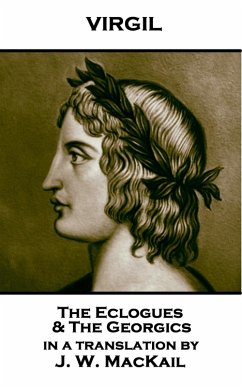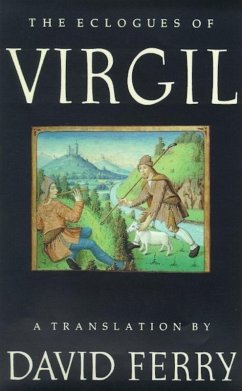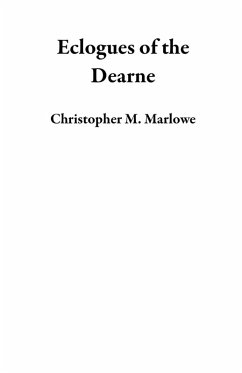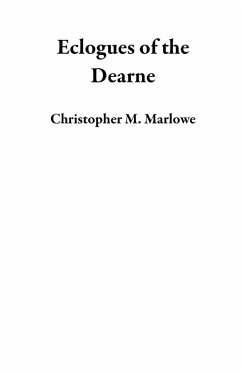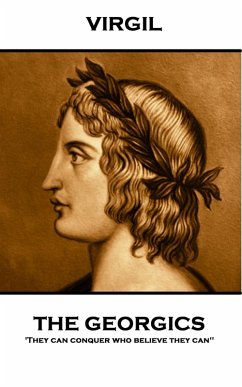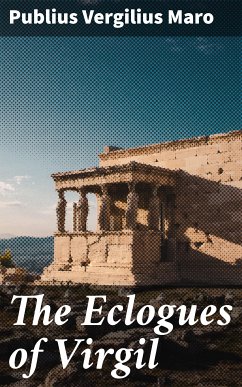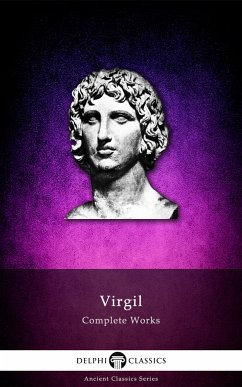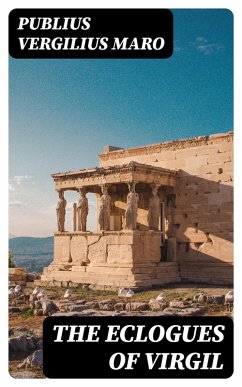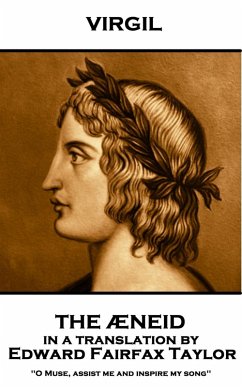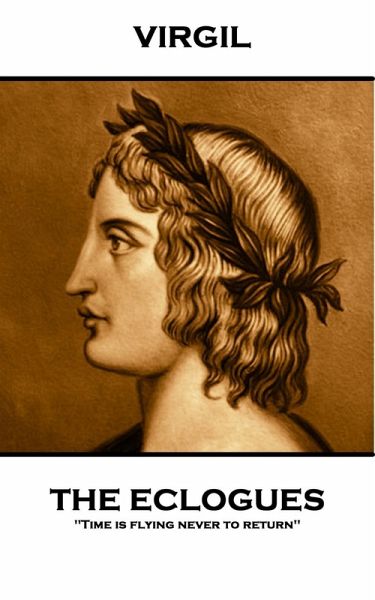
The Eclogues (eBook, ePUB)
'Time is flying never to return''

PAYBACK Punkte
1 °P sammeln!
Virgil-Publius Vergilius Maro-was born at Andes near Mantua, in the year 70 B.C. His life was uneventful, though he lived in stirring times, and he passed by far the greater part of it in reading his books and writing his poems, undisturbed by the fierce civil strife which continued to rage throughout the Roman Empire, until Octavian, who afterwards became the Emperor Augustus, defeated Antony at the battle of Actium.Though his father was a man of humble origin, Virgil received an excellent education, first at Cremona and Milan, and afterwards at Rome. He was intimate with all the distinguishe...
Virgil-Publius Vergilius Maro-was born at Andes near Mantua, in the year 70 B.C. His life was uneventful, though he lived in stirring times, and he passed by far the greater part of it in reading his books and writing his poems, undisturbed by the fierce civil strife which continued to rage throughout the Roman Empire, until Octavian, who afterwards became the Emperor Augustus, defeated Antony at the battle of Actium.
Though his father was a man of humble origin, Virgil received an excellent education, first at Cremona and Milan, and afterwards at Rome. He was intimate with all the distinguished men of his time, and a personal friend of the Emperor. After the publication of his second work, the Georgics, he was recognized as being the greatest poet of his age, and the most striking figure in the brilliant circle of literary men, which was centred at the Court.
He died at Brindisi in the spring of 19 B.C. whilst returning from a journey to Greece, leaving his greatest work, the Aeneid, written but unrevised. It was published on the direct orders of Emperor Augustus by his executors, and immediately took its place as the great national Epic of the Roman people.
Virgil seems to have been a man of simple, pure, and loveable character, and the references to him in the works of Horace clearly show the affection with which he was regarded by his friends.
John William Mackail was born in Ascog on Bute on August 26th, 1859.
He was educated at Ayr Academy; at Edinburgh University, from 1874 to 1877; and at Balliol College, Oxford, from 1877. At Oxford, he took first classes in classical moderations (1879) and literae humaniores ('Greats') in 1881, and also secured the Hertford (1880), Ireland (1880), Newdigate (1881), Craven (1882) and Derby (1884) Prizes. He was elected to a Balliol fellowship in 1882.
In 1884, Mackail accepted a post in the Education Department of the Privy Council (later the Board of Education), and became its Assistant Secretary in 1903. It was here he made a lasting contribution to the secondary education system established by the 1902 Education Act, and to the organisation of a system of voluntary inspection for the public schools. He retired from office in 1919.
As a translator he publisherd works on Virgil, the Icleandic sagas as well as works of more biographic interest. MacKail was the official biographer of his close friend the socialist artist William Morris.
He was Oxford Professor of Poetry (1906-11), and President of the British Academy (1932-36). He was appointed to the Order of Merit in 1935.
John Willam MacKail died on 13th December 1945.
Though his father was a man of humble origin, Virgil received an excellent education, first at Cremona and Milan, and afterwards at Rome. He was intimate with all the distinguished men of his time, and a personal friend of the Emperor. After the publication of his second work, the Georgics, he was recognized as being the greatest poet of his age, and the most striking figure in the brilliant circle of literary men, which was centred at the Court.
He died at Brindisi in the spring of 19 B.C. whilst returning from a journey to Greece, leaving his greatest work, the Aeneid, written but unrevised. It was published on the direct orders of Emperor Augustus by his executors, and immediately took its place as the great national Epic of the Roman people.
Virgil seems to have been a man of simple, pure, and loveable character, and the references to him in the works of Horace clearly show the affection with which he was regarded by his friends.
John William Mackail was born in Ascog on Bute on August 26th, 1859.
He was educated at Ayr Academy; at Edinburgh University, from 1874 to 1877; and at Balliol College, Oxford, from 1877. At Oxford, he took first classes in classical moderations (1879) and literae humaniores ('Greats') in 1881, and also secured the Hertford (1880), Ireland (1880), Newdigate (1881), Craven (1882) and Derby (1884) Prizes. He was elected to a Balliol fellowship in 1882.
In 1884, Mackail accepted a post in the Education Department of the Privy Council (later the Board of Education), and became its Assistant Secretary in 1903. It was here he made a lasting contribution to the secondary education system established by the 1902 Education Act, and to the organisation of a system of voluntary inspection for the public schools. He retired from office in 1919.
As a translator he publisherd works on Virgil, the Icleandic sagas as well as works of more biographic interest. MacKail was the official biographer of his close friend the socialist artist William Morris.
He was Oxford Professor of Poetry (1906-11), and President of the British Academy (1932-36). He was appointed to the Order of Merit in 1935.
John Willam MacKail died on 13th December 1945.
Dieser Download kann aus rechtlichen Gründen nur mit Rechnungsadresse in D ausgeliefert werden.




